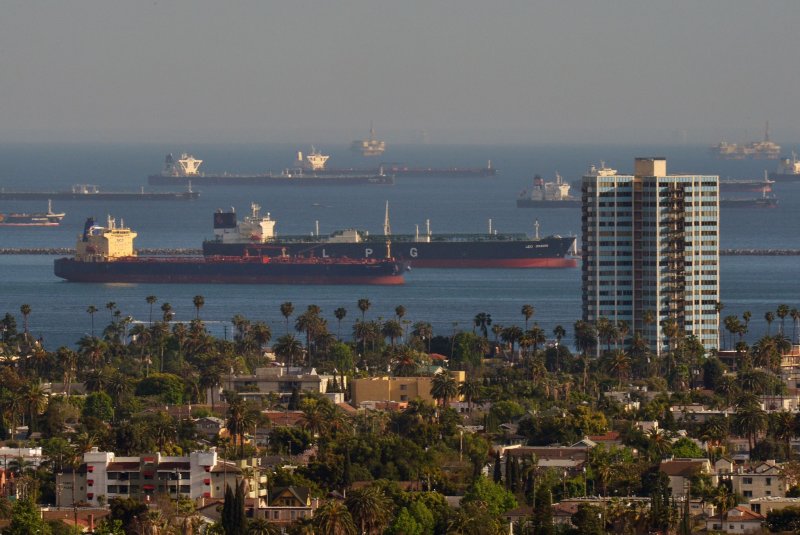1 of 3 | Crude oil prices will be under pressure for much the week due to lingering supply-side issues stemming in no small part to the Western sidelining of Russian oil. Photo by Jim Ruymen/UPI |
License Photo
Dec. 5 (UPI) -- A confluence of factors, from production cuts at an OPEC-led group to a price cap on Russian crude oil, drove a rally in crude oil prices early Monday.
West Texas Intermediate, the U.S. benchmark for the price of oil, was up 2% as of 9:10 a.m. EST to trade at $82 per barrel. Brent, the global benchmark, was up 2.3% to trade at $87.60 per barrel.
The rally was triggered in part by a weekend decision from OPEC+ -- a group made up of the core members of the Organization of the Petroleum Exporting Countries and their non-member state allies, such as Russia -- to cut production allotments by a collective 2 million barrels per day, or about 2% of global demand.
The decision may seem ill-timed given the dramatic pivot away from Russian crude oil. Members of the Group of Seven were joined by those in the European Union in agreeing to a $60-per-barrel cap on Russia crude oil. Urals, the Russian benchmark for the price of oil, has been trading at a $20 discount to Brent and shippers going over that level would be subject to Western ire.
Members of the EU are also banning waterborne crude oil from Russia, leaving it to pipelines such as Druzhba to keep carrying supplies. Polish pipeline operator PERN in October reported that its automated systems detected a leak on one of the two lines of the Druzbha pipeline, which can usually carry 1 million bpd of crude oil.
PERN at the time offered no details on the amount of oil released from the system, but stressed that the rest of the infrastructure is working normally. There were no apparent issues for the end users in Germany.
Ann-Louise Hittle, an analyst at consultant group Wood Mackenzie, said that despite the supply-side concerns, the OPEC+ decision was not much of a surprise. It's uncertain how effectively the price cap and the moratorium will be monitored and cheating is inevitable.
"In addition, the producers' group faces downside risk from the potential for weakening global economic growth and China's zero COVID policy," she said.
China's tight social restrictions stifled demand and kept a lid on crude oil prices, though public frustration boiled over to rare protests in major cities such as Beijing and Shanghai. The government has since hinted that it would loosen up.
On Sunday, China reported 31,824 cases, down substantially from record highs of 39,791in late November. Two people died of complications from COVID-19 during the weekend.















